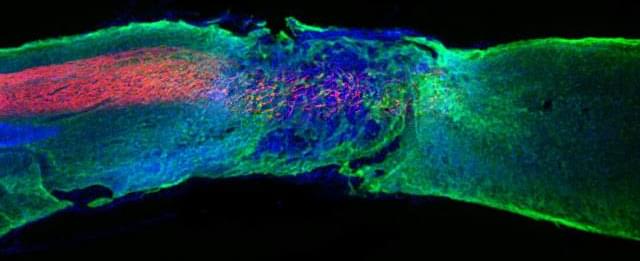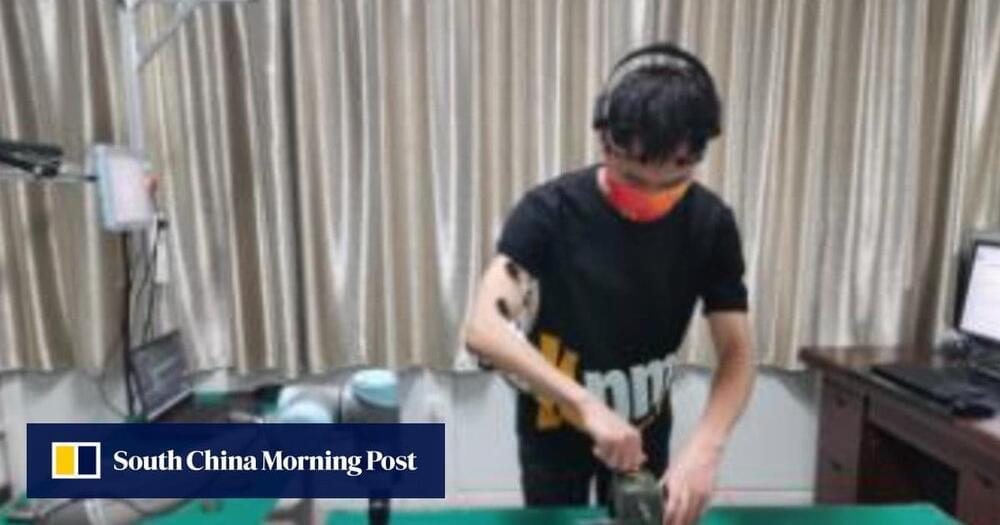A single injection of a newly developed drug has been shown to reverse paralysis in mice with severe spinal cord injuries. By mimicking the extra-cellular matrix around the spine, the liquified drug promotes the regeneration of severed nerves and the repair of other vital tissues, allowing the rodents to regain the ability to walk within four weeks.
Describing this breakthrough in a new study in the journal Science, researchers explain how they injected synthetic nanofibers into the damaged tissue of mice 24 hours after making a cut in their spinal cords. Consisting of an array of peptides, these nanofibers quickly assemble into a gel around the wound and begin communicating with cells in order to promote healing.







